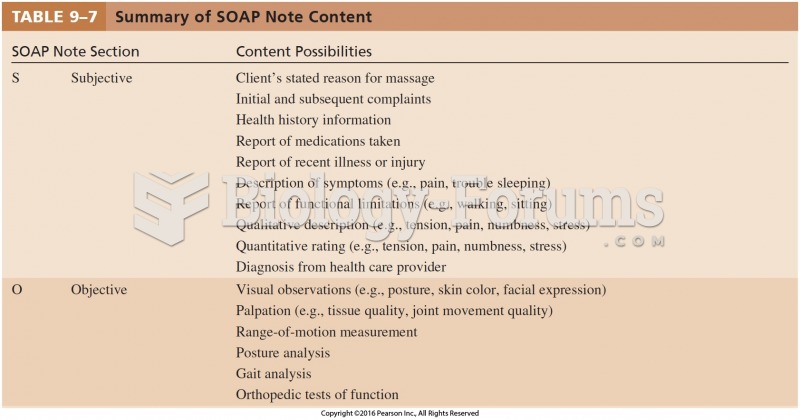|
|
|
People with high total cholesterol have about two times the risk for heart disease as people with ideal levels.
When blood is exposed to air, it clots. Heparin allows the blood to come in direct contact with air without clotting.
Atropine, along with scopolamine and hyoscyamine, is found in the Datura stramonium plant, which gives hallucinogenic effects and is also known as locoweed.
If all the neurons in the human body were lined up, they would stretch more than 600 miles.
Many people have small pouches in their colons that bulge outward through weak spots. Each pouch is called a diverticulum. About 10% of Americans older than age 40 years have diverticulosis, which, when the pouches become infected or inflamed, is called diverticulitis. The main cause of diverticular disease is a low-fiber diet.







